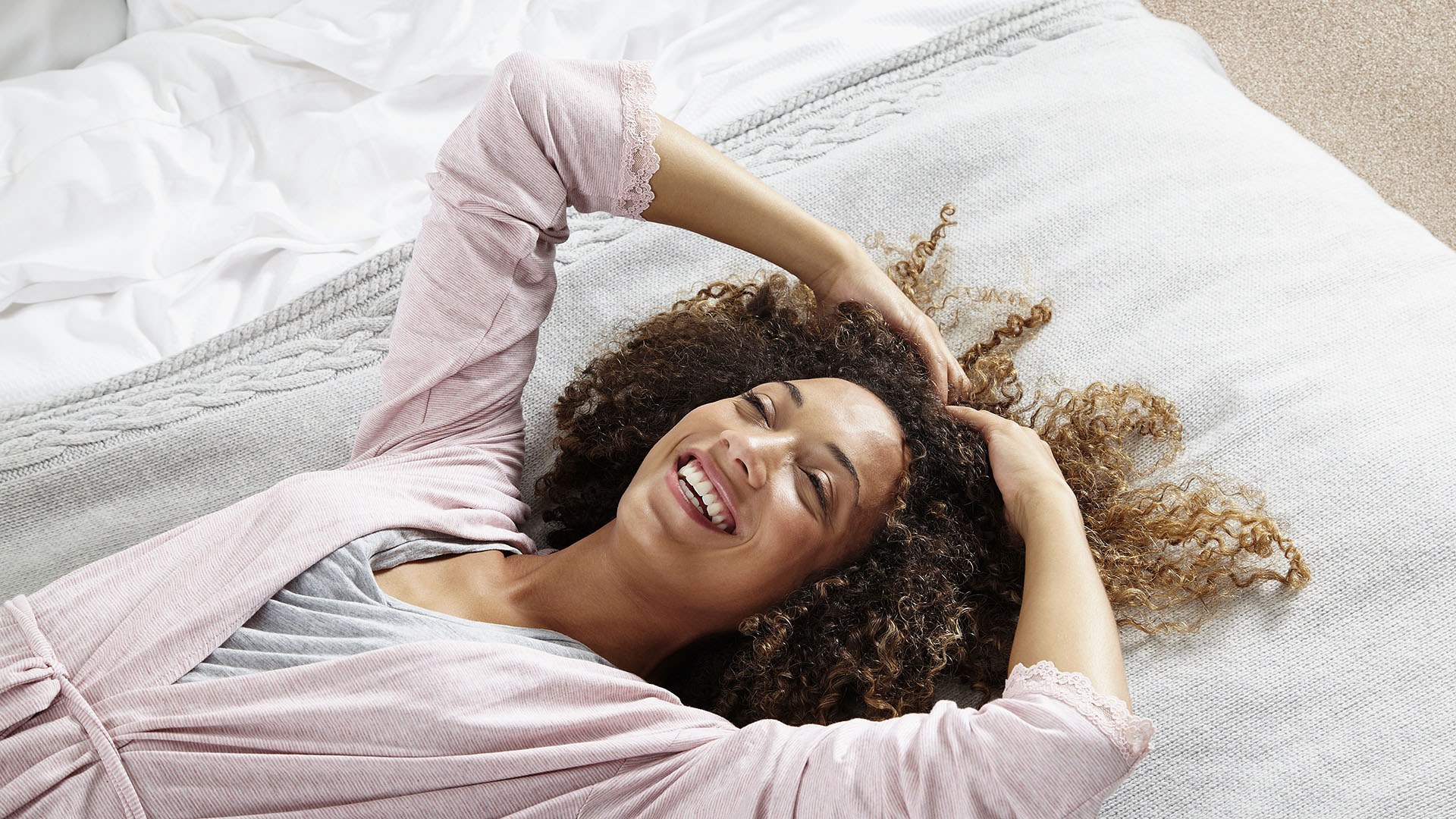
When you're looking for the best mattress, there are lots of things to consider. What size should it be? How much are you looking to spend? What kind of filling do you prefer? And also on that list should be firmness: are you looking for a mattress that's soft, medium or firm?
Those terms, though, can be a little vague. So let's first define what we mean. In general, firmness is described between 1 and 10, where 10 is the firmest. This is the rating we use in our mattress reviews. We'd consider a 2-3 soft/plush, a 4 medium-soft, a 5-6 medium, a 7 medium-firm, and an 8-9 firm mattress. To our knowledge, no one's ever produced a 1 or 10.
That said, note we say 'described' rather than 'measured' because there's generally no agreed way of measuring firmness. So, much like sizes for women's clothes, what's called a 6.5 by one manufacturer may feel the same as a 7.5 with another. In fact, some brands don't even describe the level of firmness at all!
So how can you be sure how soft or firm a mattress is? If you're buying from a store, then trying it out in person is the obvious answer. If you're buying online, though, checking reviews, including those on this website, can help you out. And ultimately, most online mattresses come with a free trial, so you can at least return it, if it's not suitable. There's also the option of changing the softness of your existing mattress to make it firmer or softer; if you like that idea, check out our guide to the best mattress toppers.
So with all that said, is a firm or soft mattress better? As sleep specialist, coach and speaker Angela Holliday-Bell explains, the short answer is that it varies from person to person.
"I personally prefer the feel of a soft plush mattress," says Angela. "I like the feeling of sinking into my mattress and the envelopment that comes with that. With that being said, there are many factors that come into play when determining the best level of support from a mattress. These include your preferred sleep position, weight, and any pain points."
In this article, we'll look at all these factors and more, to help you decide which mattress type is right for you.
Sign up to get the BEST of Tom's Guide direct to your inbox.
Get instant access to breaking news, the hottest reviews, great deals and helpful tips.
Pressure relief vs support
The main difference between a soft and firm mattress lie in the level of pressure relief and support they provide. Soft or plush mattresses see our guide: What is a plush mattress?) score highly on pressure relief. Put simply, because you sink into them, they put less pressure on your hips and shoulders.
However, it's not all good news. On a soft mattress, your spine is likely to dip more, a problem known as anterior pelvic tilt, and that could lead to bad posture and pain over time (most of our best mattress for back pain picks are on the firmer side, for this reason). Firm options such as a pocket sprung mattress don't let you sink in so much, which means they support your back more robustly. So it's very much a question of finding the right balance between pressure relief and support.
How you assess that will mainly come down to two things: your sleep style and body type.
Sleep style
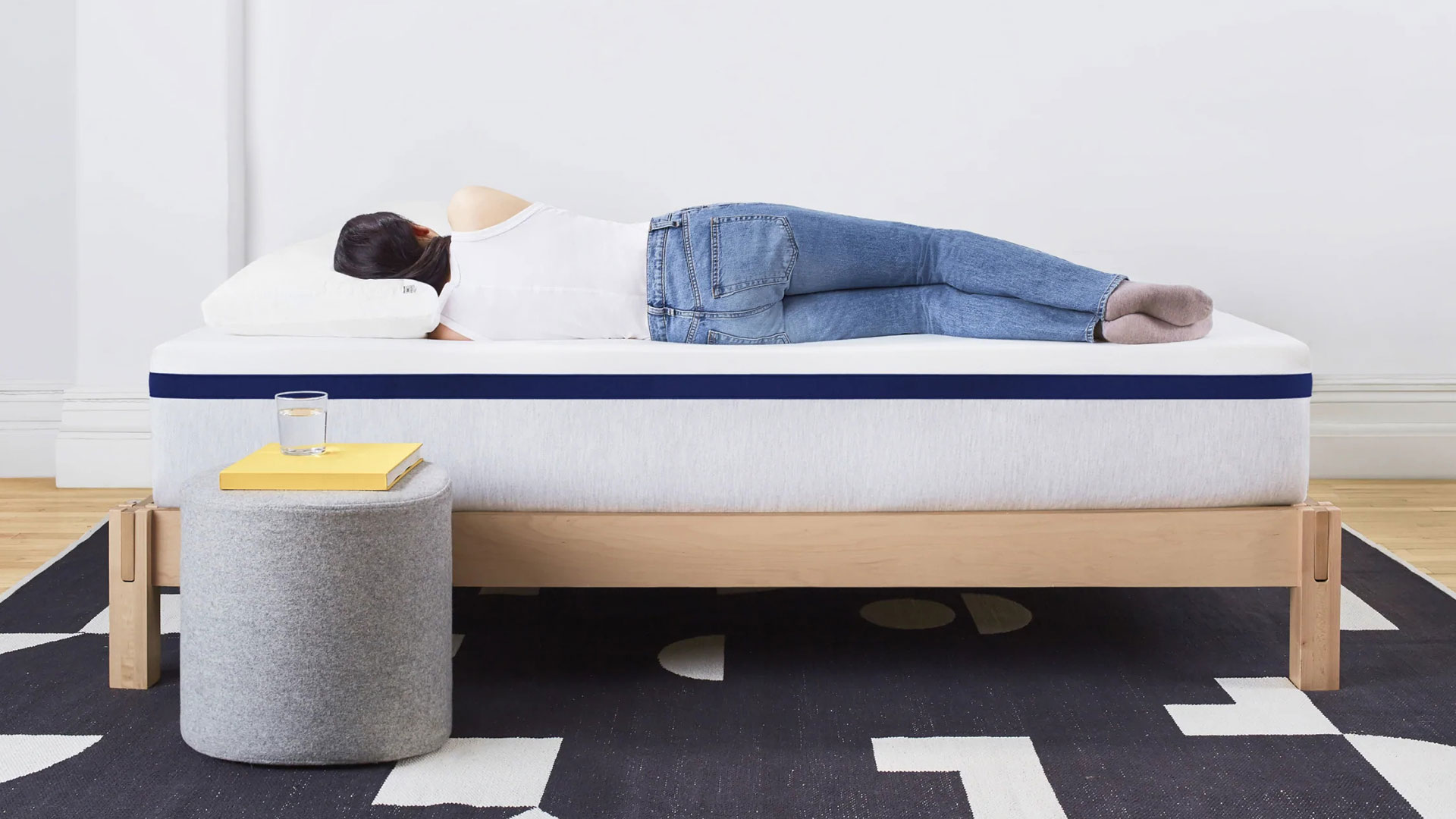
If you’re either a back or stomach sleeper, a firm mattress is better. That’s because your spine will be better supported. On a soft mattress, in contrast, your core will sink in relation to your arms, neck and head, and that could lead to long-term back problems.
If you’re a side sleeper, though, the opposite is true. A firm mattress will put too much pressure on your hips and shoulders, and a softer one will be better, letting them sink into the mattress more easily. (See our guide to the best mattress for side sleepers for more on this.)
So what if you're a combination sleeper, ie you do a bit of everything? In practice, most combination sleepers tend towards one sleeping style overall. So for example, if you're mostly a side sleeper, a softer mattress is likely to be more suitable than a firmer one.
Body type
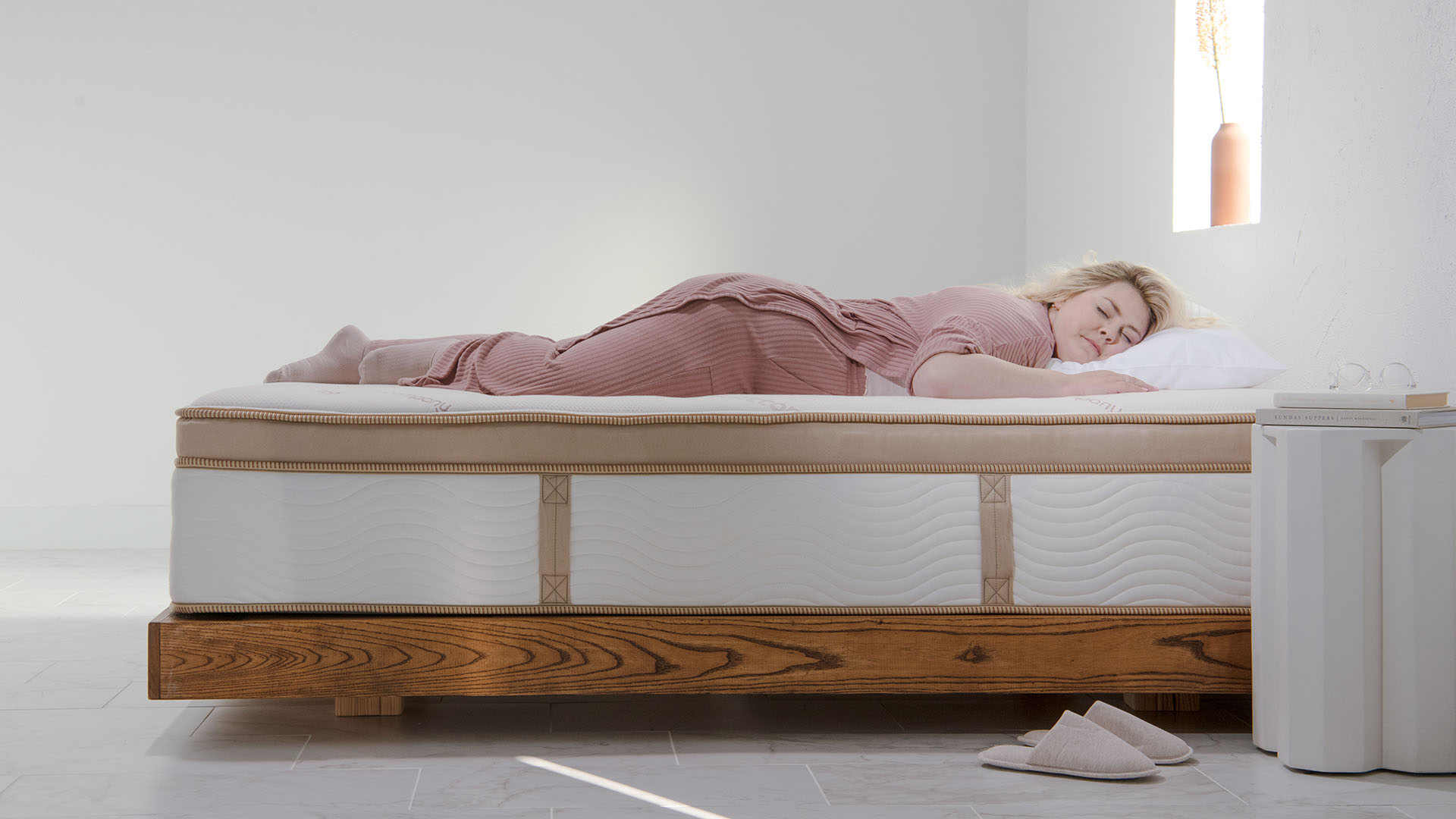
Your body type is also important when it comes to choosing between a softer and firmer mattress. Put simply, the heavier you are, the firmer the mattress you're likely to need.
If you're lighter than average, a firm mattress won't provide enough 'give' and you'll feel uncomfortably 'on top', while a softer mattress will let you sink in enough to be comfortable. How soft? Well, that depends on your sleep style. So if you're a lightweight side sleeper, you'll be looking at the softer side of the spectrum, whereas a lightweight back sleeper would tend more towards a medium.
The converse is also true. If you're heavier than average, your priority will be a firm mattress that's support your body adequately. And if you sleep on your back or front, you'll want the maximum amount of firmness, whereas if you're a side sleeper, something more medium-firm may be better.
Motion transfer
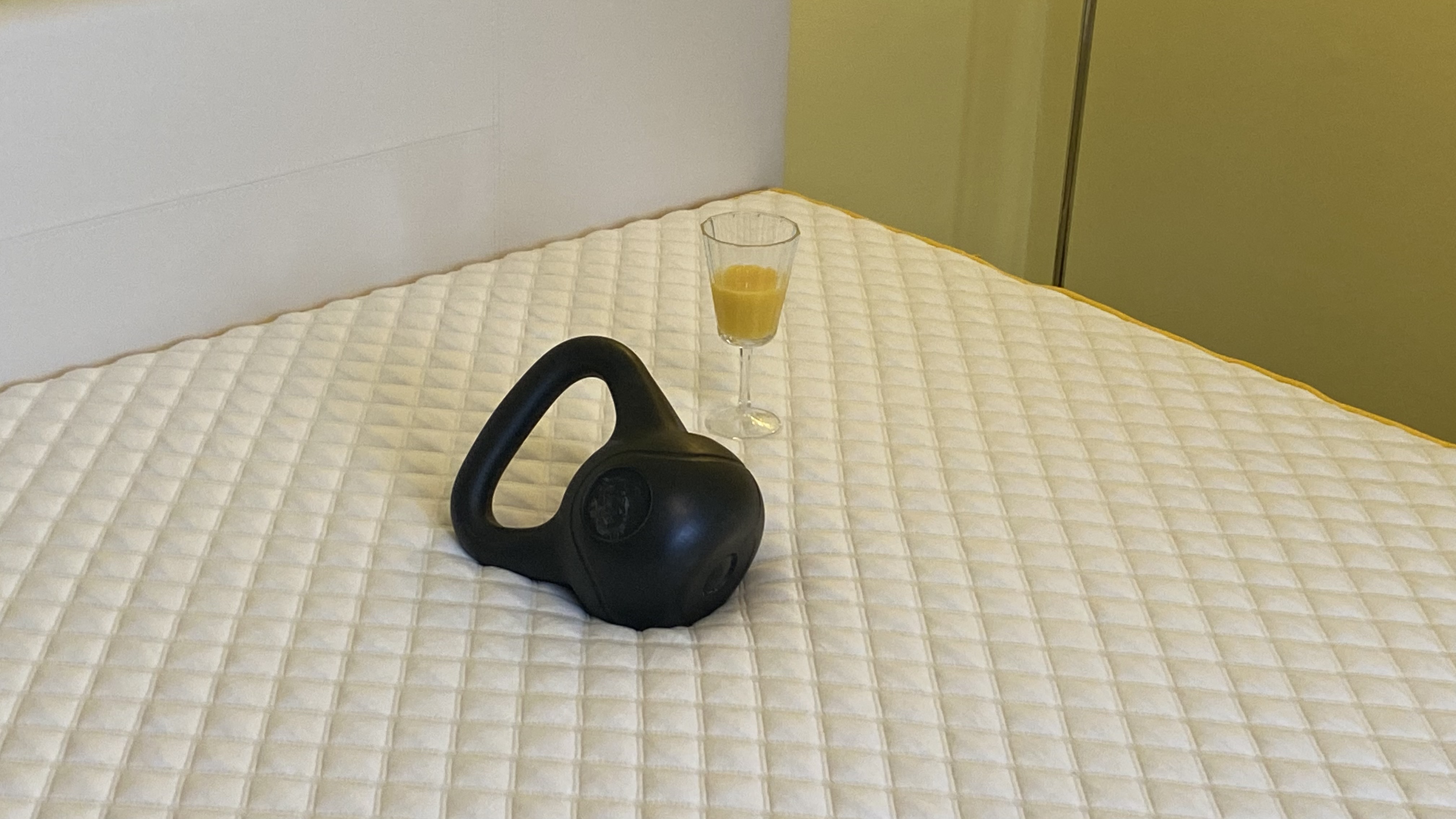
Another factor in choosing between a soft and firm mattress is whether you sleep alone, or as part of a couple. In the case of the latter, you'll be concerned about motion transfer. As a generalisation, softer mattresses have lower motion transfer, which should make for a less disruptive night's sleep.
That said, other design factors can make for low motion transfer. So for example, our review of the Eve Hybrid Premium found it very good at absorbing motion, despite rating it 7.5 for firmness. In terms of motion transfer, then, each mattress really should be considered on a case-by-case basis.
Temperature
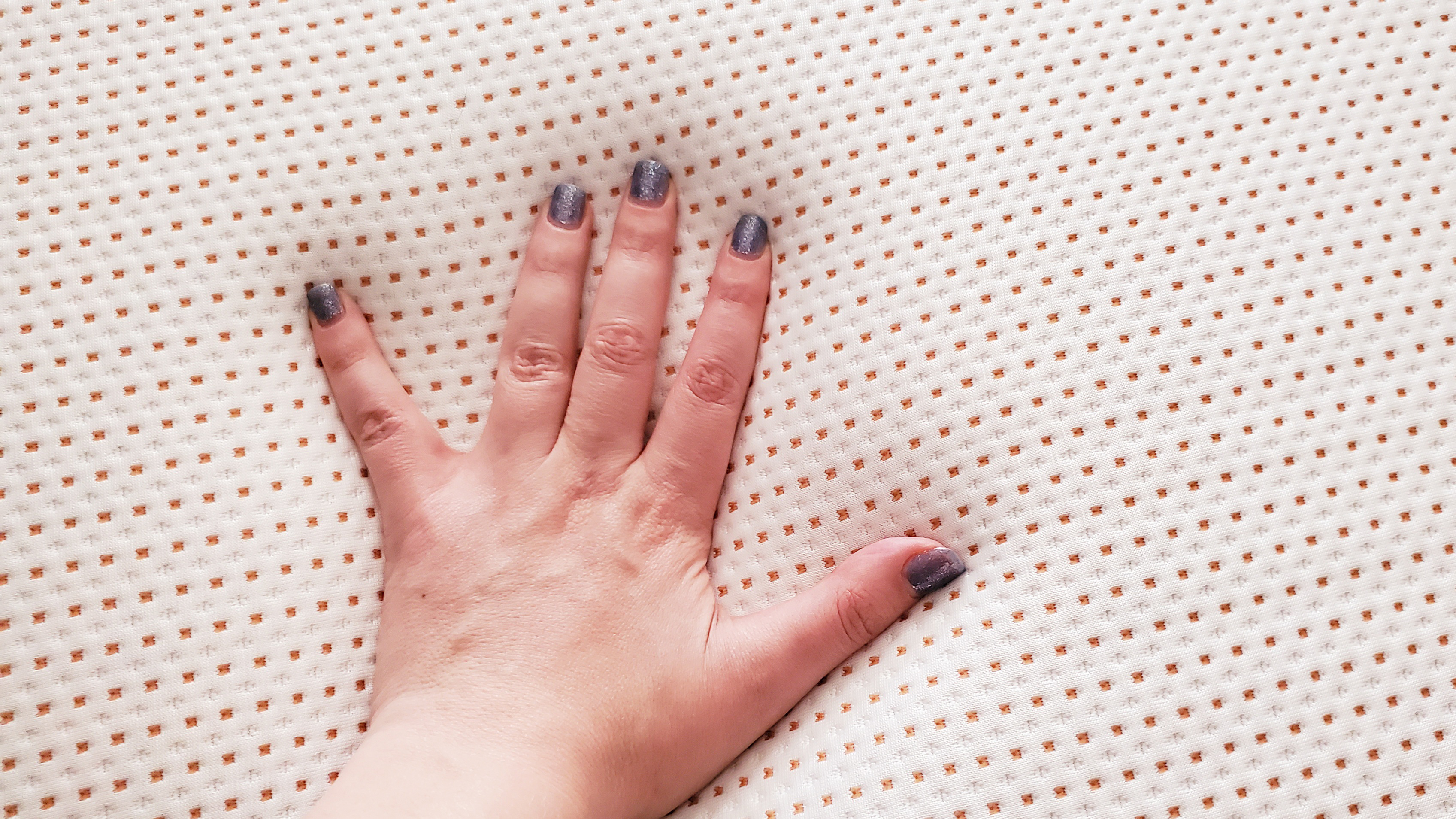
A final consideration is whether you tend to sleep hot. If that's the case, softer mattresses aren't ideal, because when you sink into them, you compact the filling and reduce the airflow both around you and within the mattress.
That said, many manufacturers have striven to find ways around this problem, through design and choice of materials. So you have a problem with overheating at night, you again need to consider each model on a case-by-case basis. Our guide to the best cooling mattresses will help you out there.
Tom regularly writes about sleep for Tom's Guide and our sister site T3.com. Over the years he's tested a number of mattresses, duvets and pillows, and as a back pain sufferer, has a keen interest in finding ones that offer maximum support. Plus, in running a successful Airbnb business, sleep hygiene and providing the right bedding for guests has become a big part of his day-to-day life.

